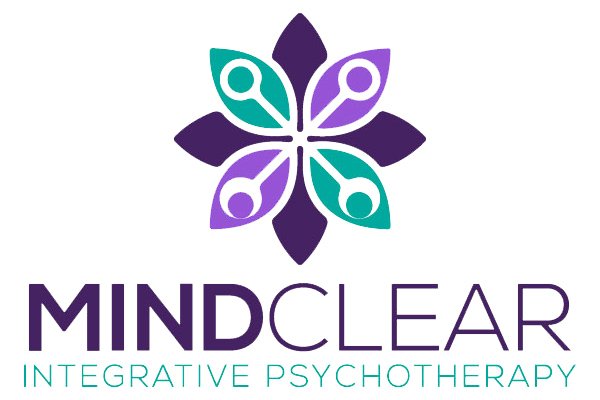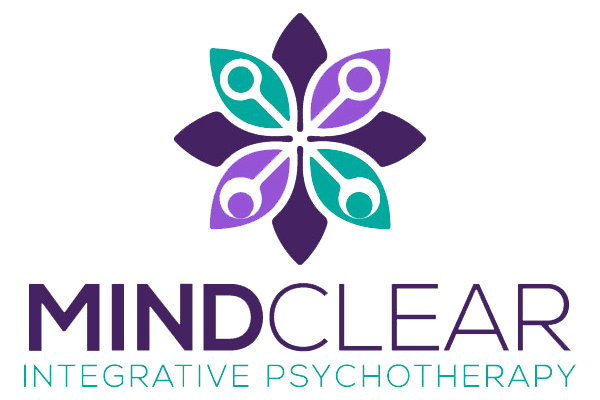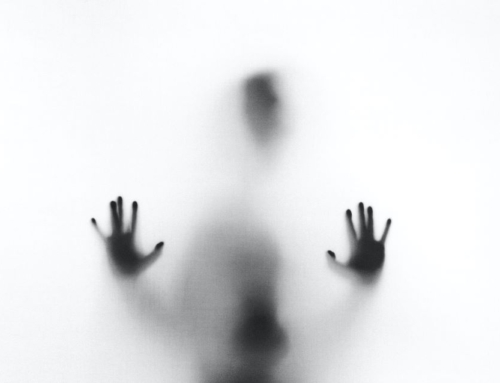Holistic Psychotherapy: Controversies of a Non-Diagnostic Approach

People come to therapy because they want to feel better. There is no controversy in that. How to help people feel better on the other hand, hasn’t been agreed upon since the evolution of human existence. Whether it be religion, political ideologies, or the latest fashion trend, there is always some new proclamation providing the answers to all your problems. Therapy, in general, is no different.
The idea that human suffering is caused by a disordered brain is one that only came about in the last half century or so. Similar previous ideas were that suffering was caused by problems with your phlegm and bile, which led to 2000 years of bloodletting as a form of “treatment”, or due to witchcraft, leading to needlessly and cruelly killing tens of thousands of women. In fact, the “science” of identifying witches was quite like how psychiatry and the current Diagnostic and Statistical Manual (what mental health professionals use to diagnose) work today.
Suffering as individual and neurological is certainly a framework that some find helpful, for various reasons. Usually, the people for whom it is the most useful are the people not receiving the diagnoses.
The medicalization of human suffering is only a belief system, not fact. And, the actual evidence appears to suggest that this approach is, at best, unhelpful and, at worst, quite harmful.
Providing holistic psychotherapy that eschews diagnoses shouldn’t be controversial, yet it is. It contradicts a political behemoth that is incredibly powerful. It’s also really hard and takes a long time. And, most clinicians are not adept in providing holistic care.
Yet, there are a plethora of evidence-based and humanistic reasons to steer clear of medicalized frameworks when it comes to emotional suffering and behavioral disturbance.
As one physician stated, in an article advocating for more contextualized psychiatric approaches in primary care: “Diagnoses are not adequate representations of reality.”
Indeed. The following is a brief (many books have been written on this topic!) overview of why holistic psychotherapy that shuns medicalized frameworks is essential.
Development of the Medical Model
In the 1950s, staff in hospitals started discovering how certain pills helped to tranquilize and subdue their populations. People became more manageable, extreme apathy and depression were reigned in, and profit potential was realized. This changed how emotional and psychological pain were viewed, quite purposefully.
Imagine if Bayer company had convinced everyone in the 1970s that headaches were caused by a brain dysfunction that results in a lack of aspirin. Meanwhile, of course, if you have chronic stress, nutritional imbalances, or a brain tumor, well that would be unimportant because the aspirin “works” thereby proving the theory. Millions of individuals then would’ve been diagnosed with headache disorder that must be treated with aspirin.
That is how the current predominant biomedical model of mental health essentially came to be.
For the past several decades, emotional and behavioral problems in living have been conceptualized as bio-medical illnesses requiring pharmacological intervention and/or technical, depersonalized behavioral interventions.
The financially vested interests of the pharmaceutical and psychiatric communities, the desperation of some clinicians, and the political and systemic need for social control all came together to embrace a convenient model that served the interests of each.
So-Called Biological Psychiatric Conditions
Many might intuitively understand that things like anxiety and depression are common and most often due to difficult environments. The questions then is: “What about the REAL biological disorders we know are genetic like ADHD and schizophrenia?”
Well, it turns out there is not a single diagnostic category that has ever been associated with any identifiable biological abnormality or any replicable genetic findings. At least not when trauma is accounted for. Not ever. Not one. Not bipolar, not schizophrenia, not ADHD.
ADHD. Since the rise of industrialization, conformity to a strict way of existence has arisen in parallel. Manual labor, creativity, and adventure are actively shunned in favor of intellectual pursuits. The education system in many countries has sacrificed physical education and arts classes to focus on standardized testing and preparing for college. Students are not allowed to speak without raising their hands, must sit still for extended periods of time, and work in a narrowly approved manner on, usually, quite boring material. If a student is unable to conform, he might just be diagnosed with ADHD. (And, usually it is a “he.”)
This diagnosis is also largely given to children who are living in extremely stressful and/or traumatic environments and adults with histories of trauma. In fact, early stressful lives predict an ADHD diagnosis. The overlap of “symptoms” of ADHD and complex trauma are so much so that a diagnosis of complex PTSD was left out of the DSM due to political and financial concerns of how similar the two are (as well as with other diagnoses, such as borderline personality disorder).
Then there is the rise in adults being diagnosed with ADHD. If you can’t conform to corporate America and exist comfortably in an oppressive, boring, and demanding environment, then something must be wrong with you. This rise in adult diagnoses of ADHD is directly related to the incessant need for increased productivity and excessive judgment towards those who aren’t particularly motivated to do boring stuff.
None of this would matter if a diagnosis was helpful and associated “treatments” actually worked. While amphetamines (i.e., Adderall and Ritalin) can help anyone be more productive and focused, in the long run they are actually very damaging. So, too is the diagnosis of ADHD.
Those taking these drugs, independent of original difficulties, are more likely to drop out of school, vastly more likely to be depressed (which goes back to baseline once off the drugs), and frequently experience hallucinations and psychotic experiences.
In one large study conducted in Australia, matched kids were followed through adolescence to identify differences in those who were diagnosed and treated versus those who were not. Despite having the same presentations and difficulties, the kids who were diagnosed were significantly more likely to engage in self-harming behaviors and had generally more severe problems overall.
The authors of this study conclude, “Youths may be harmed by this diagnosis and … interventions to support them are not achieving the desired effect.”
OCD. Like almost every diagnosis in the book, OCD is most prevalent among those with a trauma history. Early life stress and a temperament prone towards perfectionism are highly associated with a diagnosis of OCD; stats found by even the most ardent biological psychiatrists.
A behavior is not a disease, however. Nor is a specific kind of temperament.
If a client presents with dysfunctional compulsive behaviors then they should definitely be referred to a therapist who specializes in Exposure and Response Prevention therapy. Referring to someone who specializes in any given issue (panic, somatization, eating problems, complex trauma) is important. You don’t need a diagnosis for that to happen, or at least shouldn’t need to.
On the other hand, the broader ruminations, obsessions, and more mild compulsive behaviors associated with this diagnosis are part of a complex picture of someone struggling with multifaceted issues and difficulties coping with stress in a healthy manner.
Healing from these complex issues generally is, well, complex. There is no one technical, biological, pharmacological, or therapeutic avenue to solve all problems.
People are more than their unhealthy coping mechanisms and problematic behaviors. Reducing such to a biomedical disease with only one narrow technical solution without basis is non-sensical.
Bipolar. If you’ve read this far, you won’t be surprised to learn that this diagnosis is far more common in folks with a trauma history than not. Regardless of that, whatever may lead one to experience extreme vacillations in mood is almost moot when looking at the differences between a time when people were not treated in the medicalized way they are now.
Before the medical model took hold and pharmaceuticals became paramount to intervention, people experiencing a manic episode (which is what differentiates bipolar from other issues) most often got better with time. Usually around a year or so. And then never had an episode again.
What once might’ve been considered a nervous breakdown requiring rest and support is now known as a life-long genetic disease. Once again, with no replicated sound evidence to back up this assertion. And people who have an experience with mania tend to do so repeatedly, possibly due to the drugs, the diagnoses, or both. (See Robert Whitakers “Mad in America” for a book-length analysis of this phenomenon)
Schizophrenia. Ironically, society has come to a point where it seems everyone “knows” what schizophrenia is and how it is a life-long brain disease, while research has come to a point where it is clear that this is most often a trauma response and amenable to psychological intervention, especially early in life. A predictive, dose-responsive relationship between childhood trauma and later diagnosis of schizophrenia has been consistently found. Genetic links and neurological abnormalities? Not found.
A novel could be written (and they have!) about the plethora of problems with this diagnosis, including its racist, classist, sexist, and trauma-denying aspects.
Perhaps the biggest problem of all is that rarely, if ever, are you diagnosed with only ONE disorder, especially if you have a history of childhood trauma. The more trauma, the more diagnoses. The more suffering, the more diagnoses. The more diagnoses, the more pills and the more dehumanizing interventions. The more these don’t work, the more they’re prescribed. It’s almost never-ending.
Why Holistic Psychotherapy?
There is no doubt that there are benefits to being able to name your difficulties. It allows you to make some sense of what can be overwhelming and confusing. You might find that shame and blame start to diminish. For sure, diagnoses allow you to receive therapeutic care using your insurance benefits. Perhaps most importantly, you can find similar others with shared experiences and not feel so alone in your pain.
While not discounting these very valid and significant benefits, the long-term problems far outweigh them. Creating a narrative of understanding and finding support with similar others can happen without adhering to a medical framework of understanding psychological and emotional pain. In fact, the biomedical model has been shown throughout medicine, generally, to lead to decreased empathy in doctors and others.
Holistic psychotherapy is mutually exclusive from the medical model. In brief, below are just a few more reasons why, regardless of the positives that may come from diagnoses, they should not be part of evidence-based practice or a humanistic way of working with human problems.
Not scientific. When the DSM-5 first came out in 2013, there was a lot of coverage regarding the controversies of the entire diagnostic model. The head of the National Institute of Mental Health at the time, Thomas Insel, explicitly stated that psychiatric diagnoses “lack validity.” In turn, he stopped funding research based on them. The head of the DSM4 wasn’t that far behind.
While there is reliability in some diagnostic categories, meaning that clinicians will agree most of the time on a diagnosis given certain presentations, there is no validity at all. Psychiatric diagnoses are not scientifically valid. This means that they do not describe anything that actually exists outside of being a descriptor of other phenomena. They don’t predict treatment. They don’t predict outcomes. They don’t even predict any behavior or consistent problem, as 2 people with the same diagnosis can have completely different issues!
This is not controversial or based on opinion. It is fact. None of them are valid. Not one.
Suggest false causal explanations. Medical diagnoses and frameworks insinuate that causes of suffering lie in the brain, while ignoring socio-familial-political issues. If you actually had a brain disease, you would see a neurologist, not a psychiatrist. When ever has a psychiatrist sent you for an MRI to diagnose you with that brain disease you’ve been told you have?! Let alone the chemical imbalance that you supposedly have without any blood work indicating any such thing.
A descriptive label cannot, in turn, be used to also insinuate causal explanations. This is tautological logic; that is to say, it is illogical. If you have a headache (label) you don’t claim to now know that your head hurts because it’s caused by a headache (causal explanation). You simply have used a label to describe the problem.
That is how psychiatric diagnoses work, at best. They describe certain problems. And sometimes they even describe them well.
To be very clear, though: There has never, ever, been any evidence showing any biological or neurological abnormality associated with ANY psychiatric diagnosis. The only consistent abnormalities found in fMRI studies has universally been associated with changes in those who’ve experienced trauma or the long-term effects of the drugs given to “treat” the described problem. And, with long-term multi-faceted interventions, of which therapy may only be one, these brain patterns can and do change.
There are, however, sometimes certain patterns of brain activity found to be associated with various diagnoses or problems. But, this is not abnormality.
If you took a scan of me writing this right now and compared it to someone lounging on the beach, there would be enormous differences. Difference does not equal disease or abnormality, however. It’s kind of like, duh, yeah there are patterns in activity when someone is ruminating, stressed, hallucinating, dissociated, bored, etc. That tells you absolutely nothing and is meaningless.
False promises. The medical model of psychological suffering comes with it the idea of precise diagnoses leading to precise technical treatments. No one wants to slog through years of self-reflection and therapy or to have to overhaul their worldviews and lifestyles. If change can come from 12-16 weeks of structured, intellectualized therapy and a pill, who wouldn’t take that?
It’s beyond the scope of this article to give justice to this issue, but these promises are unequivocally false. While certain drugs, like opiates, tranquilizers, and amphetamines are very helpful in the short-term for many, they all have significant long-term problems. If taken long-term, those original benefits actually trend in the opposite direction for most people and most issues.
Worse, drugs like “anti-depressants” or SSRIs have consistently been shown across numerous multi-analyses to be no better than placebo. Additionally, the so-called neuroplastic effects of SSRIs are also found in placebo!
At the same time, these drugs have clear, sometimes permanent, effects of killing your sex life. And, they run the risk of increasing suicidality, even in people who have never considered suicide before.
As for therapy, short-term technical therapies can be helpful in addressing coping skills and problematic behaviors. But, they don’t lead to lasting change in isolation. Nor are they consistently associated with any specific outcomes related to any specific diagnoses. And, even in the best of circumstances, they only tend to have helpful results in maybe 30% of folks who actually stick with it.
Not the panacea they claim to be by any means.
Prevents curiosity and compassion. It was already stated that the biomedical model leads to decreased empathy among doctors and others. It also leads to more dehumanization, distancing, and othering. This is the opposite of compassion and connection.
Medicalized frameworks also lead clinicians to have less hope in you ever getting better, which has profound placebo and nocebo effects (i.e., you don’t get better because your doctor doesn’t believe you can). The expectation of your therapist is a strong predictor of your overall outcome.
Some have argued that the DSM and all the diagnoses contained within are a direct form of dehumanization and oppression in the world. Biomedical diagnoses serve to silence protest, ignore social problems like poverty and racism, relegate child abuse and other complex traumas to the backseat or as mere “triggers” of underlying disease, pathologize anyone for being different than a narrowly accepted way of existing, and individualize family and politico-social issues.
It also can create decreased empathy in those who get the diagnoses as well. People who already are critical and judgmental might find themselves adopting logic such as: “Well I’m not lazy because I have x diagnosis, but THAT guy is an asshole.” They also are less likely to adhere to treatment or believe that they can get better.
As the medical model of suffering has taken hold alongside a meteoric rise in the acceptance and mainstream utilization of mental health services, rates of suicide, substance use, depression, and loneliness have risen exponentially. The more therapy and psychiatric treatment society has accepted, the worse it’s gotten. To say the least, this approach doesn’t appear to be doing much good.
Interestingly, for clinicians to suggest they truly follow evidence-based practices then that would mean that they do NOT use diagnostic frameworks or promote long-term psychiatric drug use. Following the evidence leads to the fact that trauma and stress, oppressive and homogenized environments, and/or existential concerns in living are at the root of emotional and behavioral problems. And that long-term change and healing does not exist in a vacuum or through treating parts at the expense of the whole.
Diagnoses and the medical model are antithetical to trauma-informed and holistic psychotherapy.
If your behavioral or emotional issues ARE related to some physiological medical concern, then you’d better go see a neurologist or endocrinologist, not a psychiatrist or therapist.
You are not diseased, disordered, broken, off, bad, lazy, or defective because you have problems or need help. You are human.
***For a more in-depth exploration of these issues, especially as they pertain to developmental trauma, see Dr. Hunter’s book Trauma and Madness in Mental Health Services









